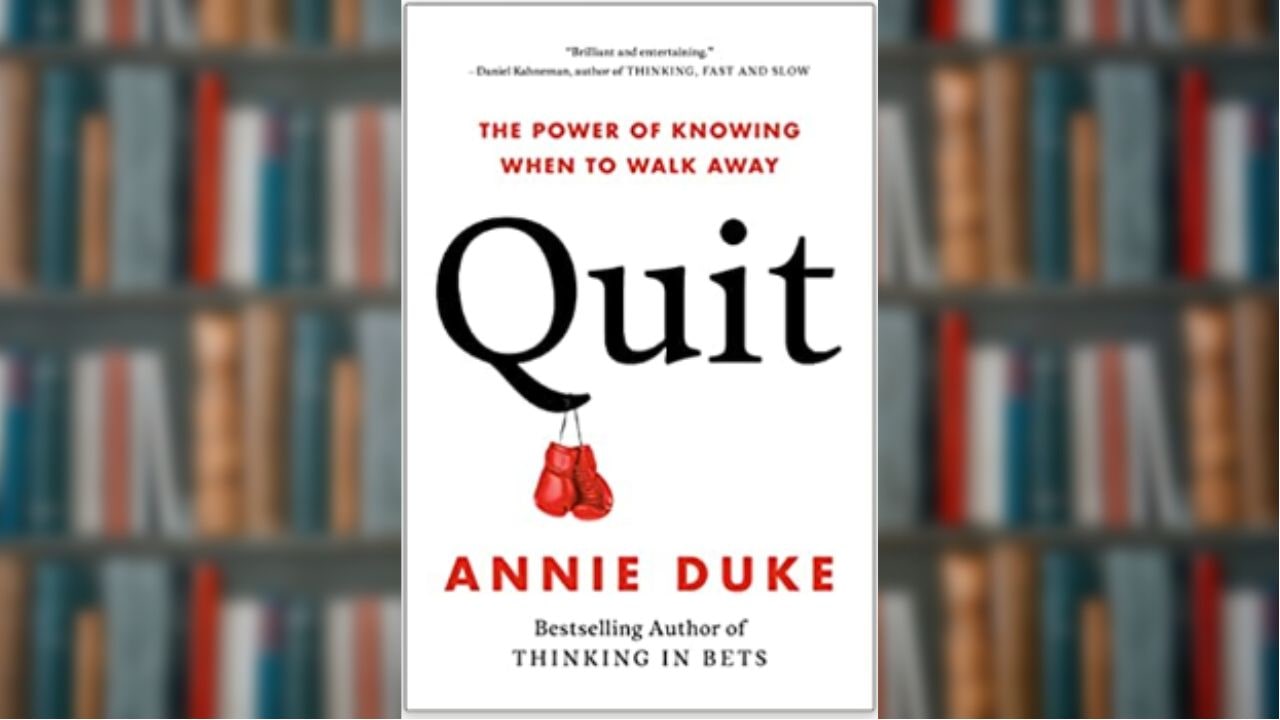Borrowing a few chips from poker player turned PhD- Annie Duke
Daniel Kahneman says that he learnt a lot from this book. Seth Godin calls it ‘life changing.’ All this for a book titled ‘Quit’? What are we missing here?
Here’s what I can tell you- the science in the book is compelling. The science that guides us about when to ‘quit’ as against when to ‘persist.’
This book is especially important now. We were all compelled to make new choices thanks to the pandemic. New ways to earn, new ways to live and of course, ‘quitting on’ what was not working and facing the wrath of those who ‘call you out’ for quitting.
The most exciting thing about this book is that author Annie Duke is perhaps the only female winner of the World Series of Poker Tournament of Champion. So she knows a thing or two about probability, taking chances and winning! This enhanced my reading experience of the book.
Bookstrapping Insights
Is the secret to success hard work, determination, and hours of practice? Or knowing when to change tracks and walk away, even though this is fundamentally different from how we have been brought up.
The classic dilemma of the quitter is that even as they quit- it seems that they’re giving up too early. This causes more heartburn than the act of walking away. Does this resonate? Drawing on stories from top athletes to Everest climbers, comedians to musicians, Annie Duke explains why learning to quit well is often crucial to success.
In our culture, those who ‘never quit’ are heroes. But we must read between the lines. What about the opportunities we are neglecting? What does it cost us? The ‘fear of waste’ drives us to stick to things too long. But the admiration we have for the ones who stick to it, is a puzzle that remains unanswered.
So how does one know when to walk away? The author talks about ‘kill criteria’. A simple example of a kill criterion is a turn around time in mountain climbing. When climbing a mountain, like Everest, leaders set turn around times for each day’s climb. For example, on summit day, the turn around time is 1pm. That means that no matter where you are on the mountain, whether you have reached the summit or not, if it is 1 pm you must turn around and head back to Camp 4. Such rules help keep the larger picture in play.
Another strategy to get better at quitting is to enlist a quitting coach, simply an outside observer to help us with the decisions. Think of that person you know, in a horrible job or a toxic relationship! Its plain to us that they should walk away, but they can’t see it for themselves.
Annie emphasises that we underestimate the value of quitting. This may well be true and have some catastrophic consequences. Quitting something connected to our core identity- however limiting that is- is especially challenging and can leave people grasping at straws.Take a look at this interesting book.
Reeta Ramamurthy Gupta is a columnist and bestselling biographer. She is credited with the internationally acclaimed Red Dot Experiment, a decadal six-nation study on how ‘culture impacts communication.’ On Twitter @OfficialReetaRG.
